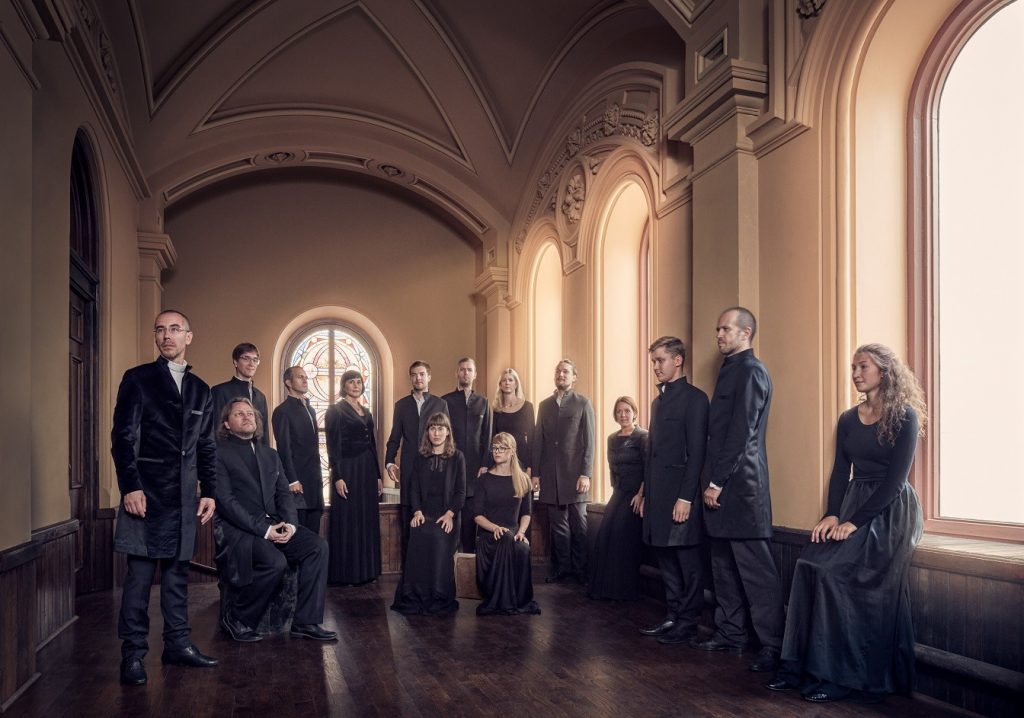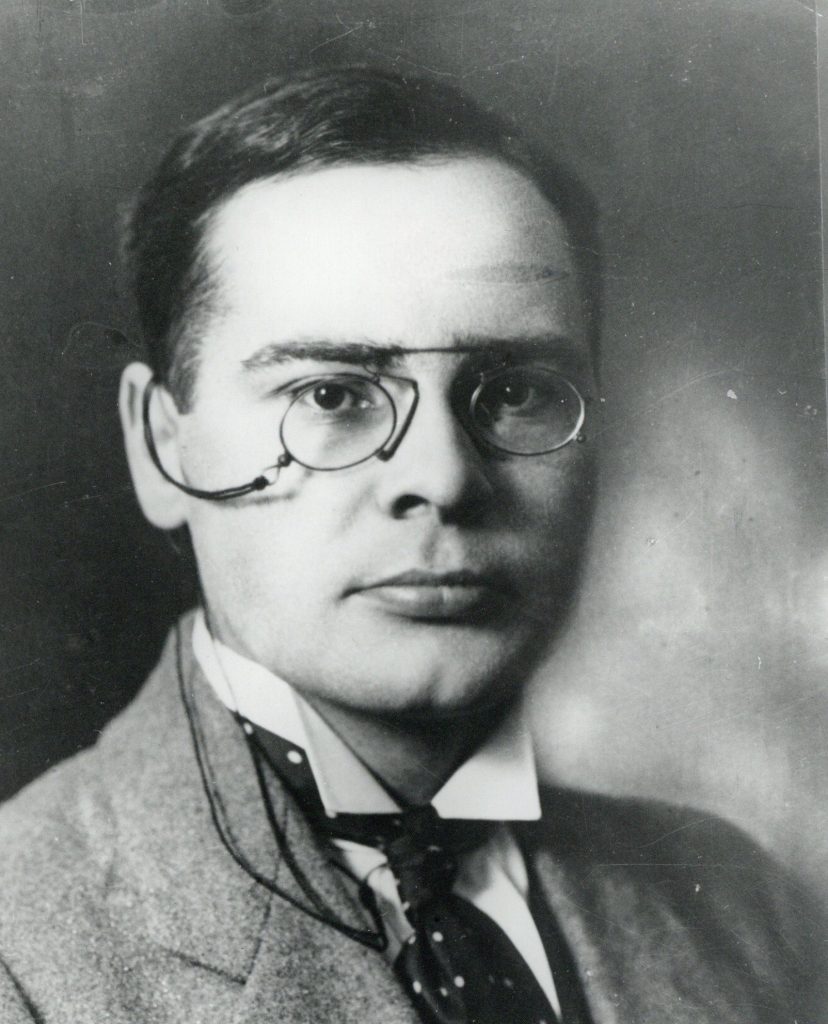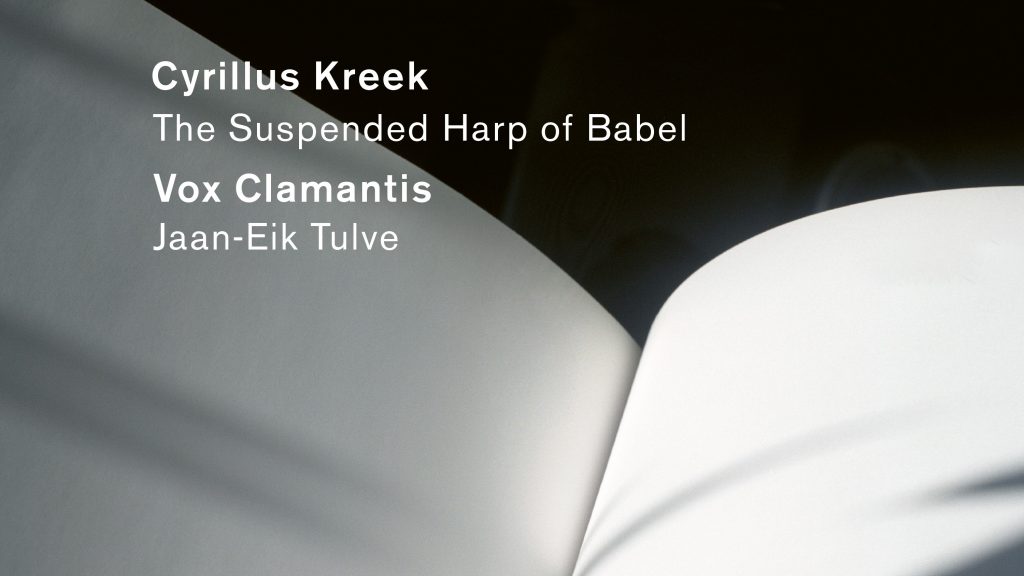ECM, the Munich, Germany-based record label known in Estonia for helping highlight Arvo Pärt’s music for the global audience back in the 1980s, has released an album by Cyrillus Kreek – an Estonian composer internationally virtually unknown until now.
“The Suspended Harp of Babel” was recorded in Tallinn’s Transfiguration Church in August 2018, featuring Vox Clamantis choir, Marco and Angela Ambrosini on nyckelharpa and Anna-Liisa Eller on kannel.
“The Suspended Harp of Babel” features performances of the choral music of Cyrillus Kreek (1889-1962). “Kreek’s pieces, incorporating graceful settings of psalms and folk hymns, are juxtaposed here with instrumental fantasias and interludes created for this recording by Marco Ambrosini. Under the direction of Jaan-Eik Tulve, the Vox Clamantis choir – whose previous ECM recordings have addressed works of Arvo Pärt, Erkki-Sven Tüür and Helena Tulve as well as Gregorian chant – prove to be ideal interpreters of a music poised between old and new,” ECM said in a press release.

One of the innovators of choral music in Estonia
Born in the village of Võnnu in western Estonia, Kreek studied trombone and composition at the Saint Petersburg Conservatory from 1908 to 1916. He then worked as a music teacher in Haapsalu, Tartu and Tallinn.
Kreek started collecting religious folksongs in 1911 and then systematically collected the Estonian folk music. He was the first Estonian collector to use the phonograph for this purpose and the harmonisations he made became a lifelong preoccupation.

“One of the innovators of choral music in Estonia, Kreek drew extensively upon folk music and was a pioneer in the documentation of it, recording, transcribing and preserving for posterity hundreds of songs, both sacred and secular,” ECM said. “His arrangements of these folk songs and folk hymns, as well as his settings of psalms, provided a bedrock for choirs in an idiom of his own, described by Paul Griffiths in the liner notes [of the CD] here as ‘restrained and yet glowing’.”
Overdue recognition
Kreek’s music, emphasising simplicity, clarity and the natural quality of the human voice, influenced many composers in Estonia, including Veljo Tormis and Tõnu Kõrvits. “The quietly radiant aura of his work is enhanced on the present recording by the contributions of Marco and Angela Ambrosini playing nyckelharpa (a traditional Swedish musical instrument – editor) and by Anna-Liisa Eller on kannel, the Estonian zither,” ECM said.
Kreek’s music is celebrated in Estonia with a yearly festival, and there is a museum dedicated to the composer in Haapsalu, but unlike such Estonian composers as Eduard Tubin (1905 – 1982) or Veljo Tormis (1930 – 2017), he is practically unknown abroad. “Documentation of his work outside his homeland has been scant to date. ‘The Suspended Harp of Babel’ – valuable both as entry point into Cyrillus Kreek’s sound-world and for its pre-echoes of Estonian music to come – is likely to trigger overdue recognition for a unique composer and researcher,” ECM noted.
The album has already earned rave reviews in Gramophone and BBC Music magazines and the Guardian newspaper in the UK. It also entered the UK’s specialist classical chart.
Cover: A fragment of the “The Suspended Harp of Babel” CD cover, courtesy of ECM.

